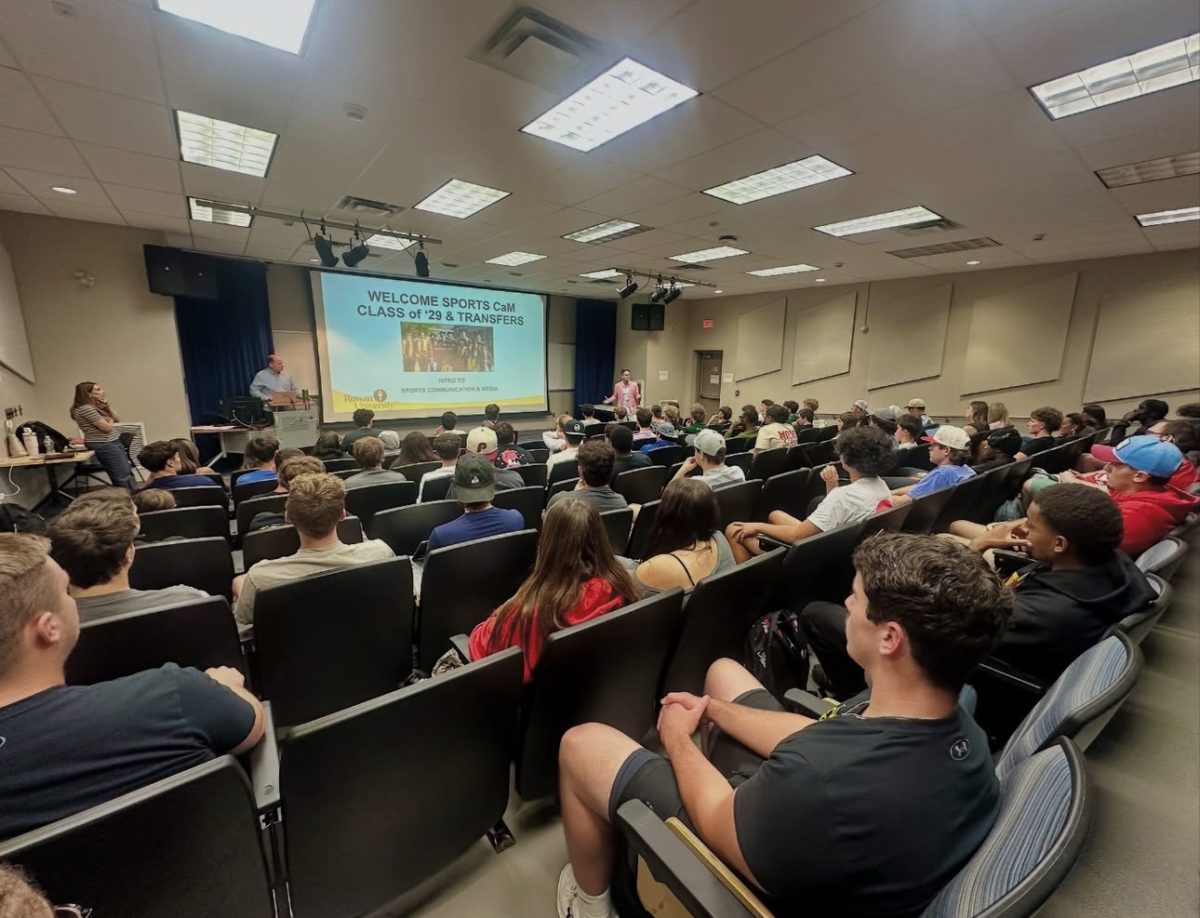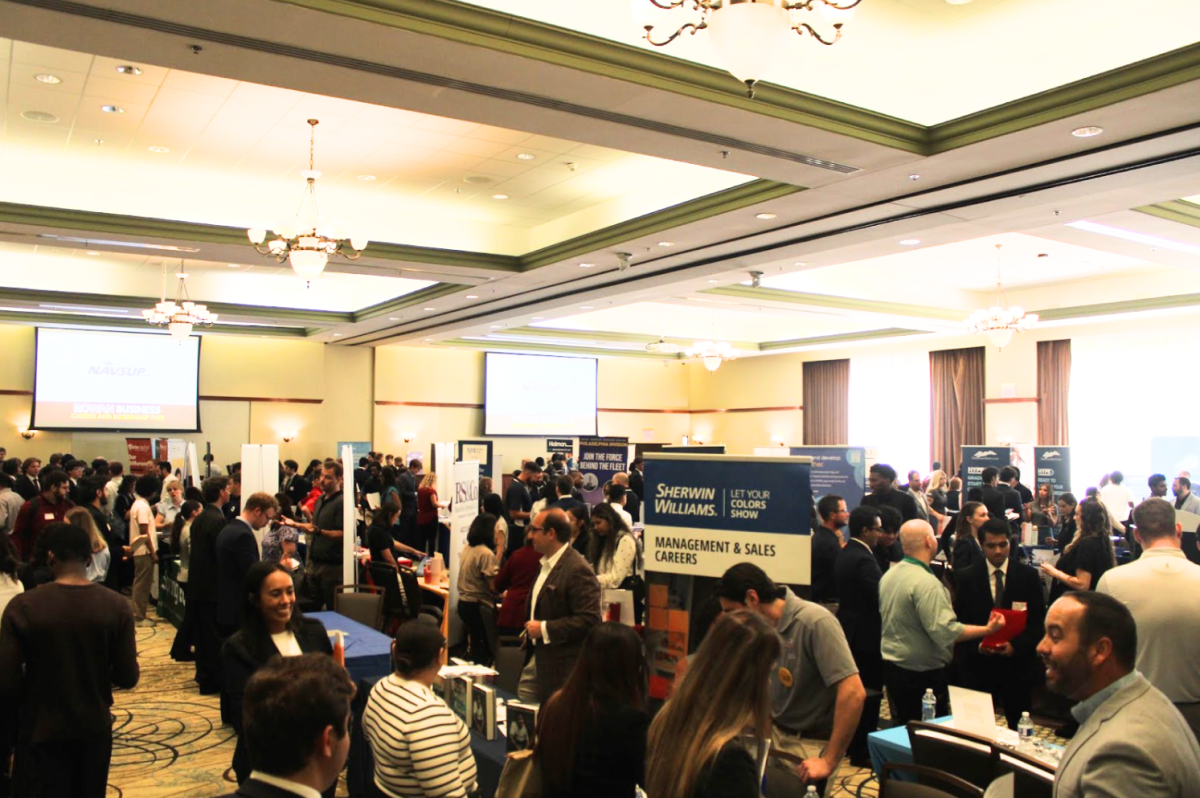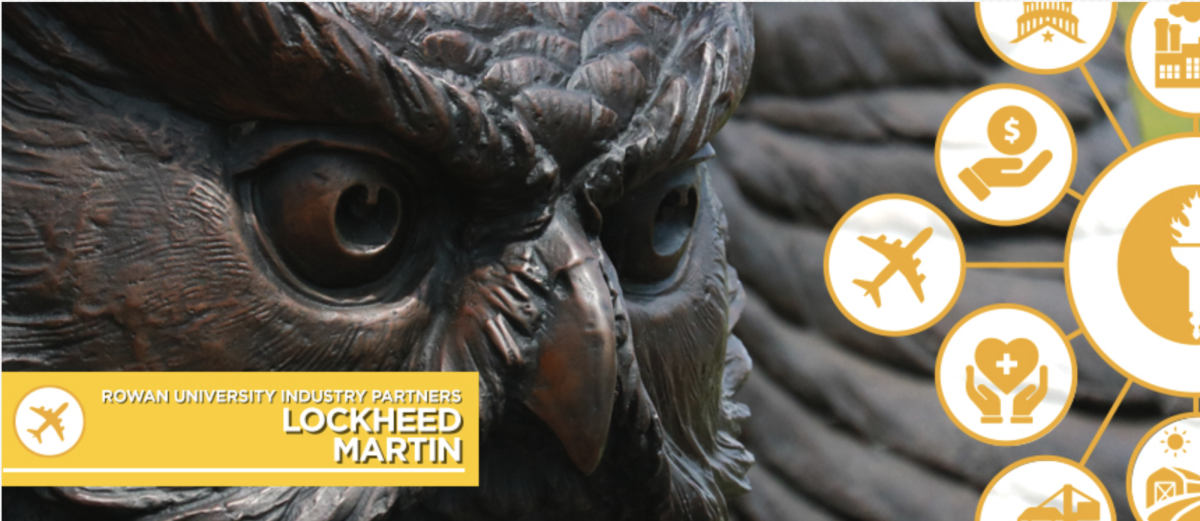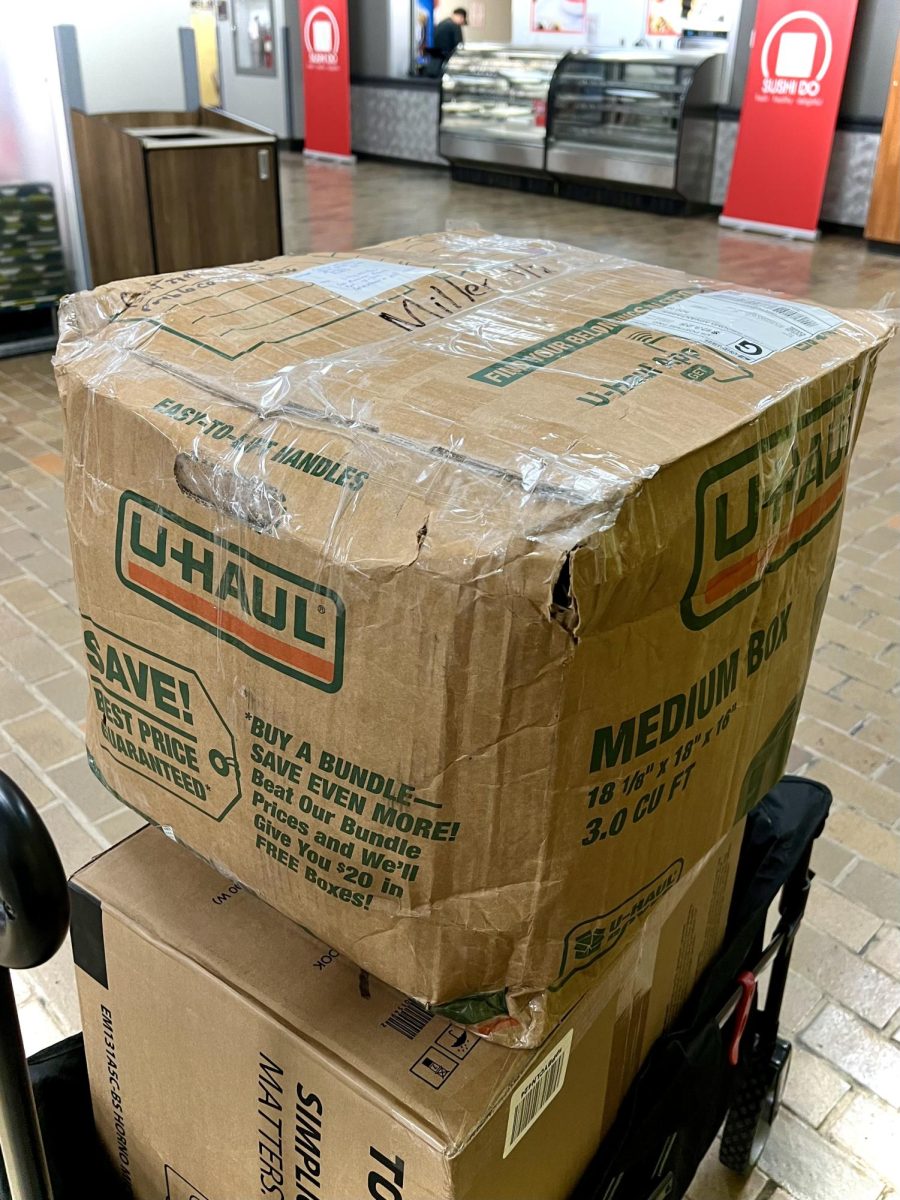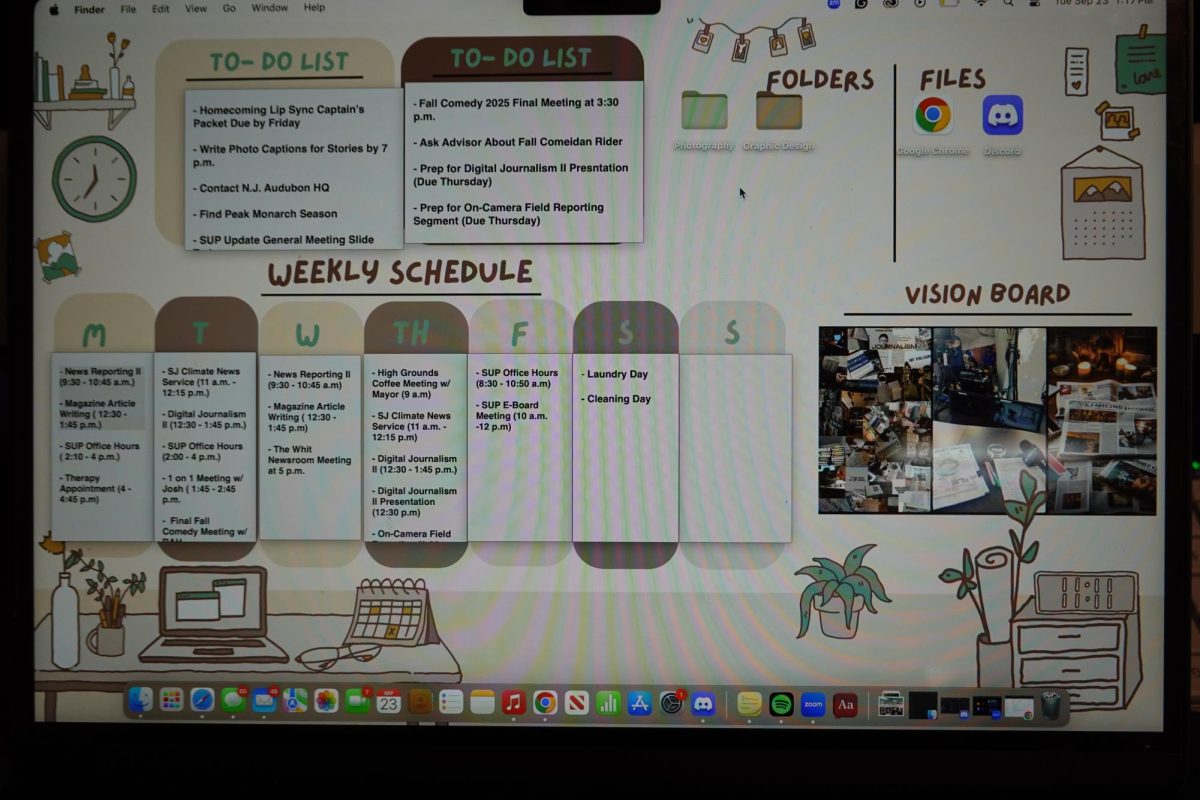Twice a week, on my way to class in Robinson Hall, I pass a poster listing major companies Rowan University graduates have gone on to work for. Among them are companies like Bloomberg, NJM, Inspira, and BetMGM.
However, one stood out: Lockheed Martin.
Rowan University offers unique programs, both for students here at Rowan and for employees at Lockheed Martin. This includes a Rowan-exclusive graduate program, designed especially by and for Lockheed Martin called the Certificate of Graduate Studies in Combat Systems Engineering, and benefits for employees enrolled in Rowan’s Rohrer College of Business.
They write on their partner page, “Rowan’s Rohrer College of Business (RCB) is proud to partner with Lockheed Martin in the educational pursuits that complement their strategic goals and bolster their employees’ careers.”
By offering these programs, Rowan connects itself to something much larger than just one company. Our taxes, when they go to the military, aren’t just dedicated to training soldiers or dropping bombs. In part, they’re funneled from the government to a massive corporate machine dedicated to perfecting the art of war: the military-industrial complex.
It’s a strictly systemic construct born of lobbying, corporate influence over the government, and an already expansive private defense industry.
Lockheed Martin is one of those corporations. In fact, 73% of Lockheed Martin’s profit comes from defense contracting, 19.5% comes from international contracting, and only 1% comes from regular commercial sales.
They create weapons of war, designed specifically to destroy while spending as few resources as possible. It makes sense; competition breeds innovation, and maintaining a military like ours demands innovation.
But at what point is it concerning that American companies are profiting from war?
These companies don’t just need defense to survive. In fact, they’re often on the offense.
For example, the United States sends money and weapons to Israel, who, according to the United Nations, continue to perpetrate a genocide against the Palestinian people. 15 out of every 16 Palestinians killed by the Israeli military are civilians, and their onslaught has only inflated, thanks in large part to the United States, whose supplies, according to The Guardian, are designed and manufactured by companies like Lockheed Martin.
In addition, they have billions in contracts with Immigration & Customs Enforcement, or ICE, which they use to develop systems made to monitor and capture immigrants, according to Lockheed Martin’s own website.
That’s not to mention the influence they hold over our government via lobbying and campaign donations. Over the last 20 years, the defense industry has contributed nearly $160 million in campaign donations and about $150 million in congressional lobbying, according to the Center for Responsive Politics.
And Rowan decided this would make a great partnership.
By bringing in large corporate collaborators, Rowan appears more attractive to prospective students seeking jobs in defense.
Many engineering and business students will enter the defense industry either way. Engineering students deserve good jobs, and they’re paying Rowan thousands to help them. It makes sense for a university to support its students throughout their journey.
Still, Rowan’s alignment with such a thing as Lockheed Martin can’t be neutral. It’s a deeply ethical and absolutely political statement.
Lockheed Martin benefits from Rowan. By working with them, Rowan supports Lockheed Martin, implicitly condoning their actions and business model.
If they were neutral, they’d keep away; if they were against it, they’d oppose it. But they’re not. By acting to Lockheed Martin’s benefit, Rowan is only bolstering their influence, effectively endorsing it.
This doesn’t mean much in itself. But it mirrors a less-than-ethical attitude Rowan has towards investment and partnership that, given Rowan’s ethics encompass the whole institution, extends to all of us as students—not just to their industry allies.
It’s not totally about the partnership itself. It’s about what it means: If it’s beneficial to them as an institution, regardless of how genuinely awful, they don’t mind it.
Public institutions like Rowan have an ethical obligation to serve the public; Lockheed Martin’s only responsibility is to deliver profit to its shareholders. These interests are antithetical, with Lockheed Martin and companies like it failing over and over again to act in society’s best interest.
At the very least, this mandates a neutral position. Yet this partnership only widens Lockheed Martin’s influence, gifting them discounts, careers, and innovation, meaning Rowan’s indifference actively wounds the public.
So this partnership isn’t just unethical on an ideological basis—it’s a failure to fulfill a public institution’s most basic ethical function.
Rowan and Lockheed Martin’s partnership is a stain on an otherwise great institution, and it needs to end.
For comments/questions about this story, DM us on Instagram @thewhitatrowan or email [email protected]




